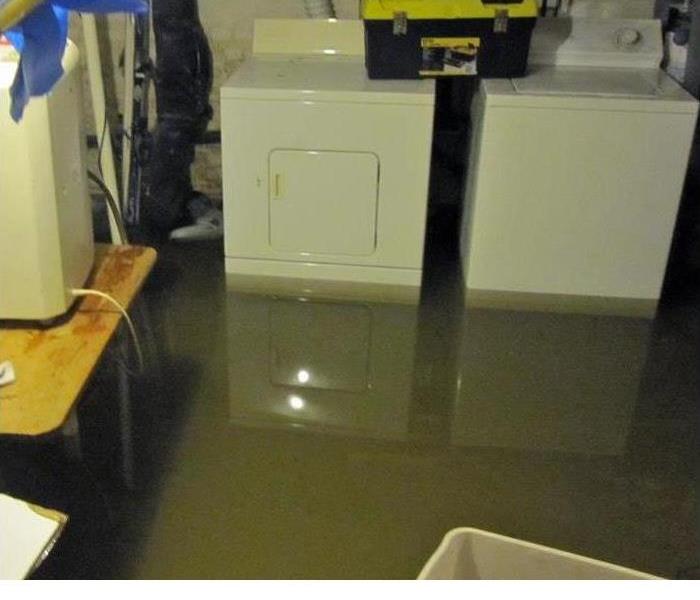How to Protect your Basement from Water Damage
3/27/2019 (Permalink)
 This basement had about a foot of water that needed to be extracted. The dry out process took 5 days
This basement had about a foot of water that needed to be extracted. The dry out process took 5 days
I just bought my first home. Unlike most homebuyers who are looking for an open floor plan or a gourmet kitchen, my first stop was always the basement! My favorite time to look at houses was in the rain, when I could determine if the basement was prone to flooding. Several times, I walked into a house's basement and watched as water ran down the walls.
Obviously, frequent water intrusion in your basement can cause issues with your foundation, and mold. But most people don't know what to look for or how to protect their basement until after they've experienced a water damage. What's obvious to me as someone who has worked in the restoration industry for 4 years may not be obvious to every homeowner, so here are some tips to help you stay dry!
- Get a sump pump. Get the sump pump rider on your insurance policy while you are at it. If you have a sump pump and it fails, your homeowners insurance will not cover the damage. Even if your home or business has never taken on water, it doesn't mean you are immune to it. Get the sump pump and check that it's functioning properly regularly.
- Consider a French drain or some other form of waterproofing. Have a professional do the work. Google the benefits. You may be surprised!
- Keep your gutters free of debris and position downspouts away from the foundation. The goal is to drain water at least three feet away, so if necessary, consider running extensions or troughs.
- If you haven't had your sewer inspected or your septic tank cleaned, now is a good time to do that. During periods of prolonged, heavy rainfall, clogged sewers and over-taxed septic's are disasters waiting to happen.
- If you have below-grade basement windows, install window covers that fasten securely to your foundation. Clear acrylic covers allow light to enter while keeping out water.
- Check the age on your hot water heater. They generally last about 10 years. If yours has made it longer, that's not necessarily a good thing! Don't wait for it to fail before you replace it.
- If you use your basement for storage, build shelves at least 6 inches from the ground. Store items in plastic bins. Photograph everything you store down there in case you need to replace it later.
- If you have a finished basement, get a good-quality dehumidifier. Consider tile floors or polished concrete over carpets.






 24/7 Emergency Service
24/7 Emergency Service